Sitting in my garden on a spring day, I’ve become enthralled with a pink tulip that has emerged from its winter nap. Early morning dew still adorns its petals like a scattering of diamonds. What is it that makes such a small thing so precious? Hope reborn.
A short while ago, the ground was brown and frozen. Then slowly peeking up through the soil warmed by the spring sunshine, the green shoots of the tulip leaves appear. Soon they are eight inches tall and tinged with the same pink that will appear on the flower buds. A few days in the sunshine and the buds burst open to full flowering, a celebration of pink.
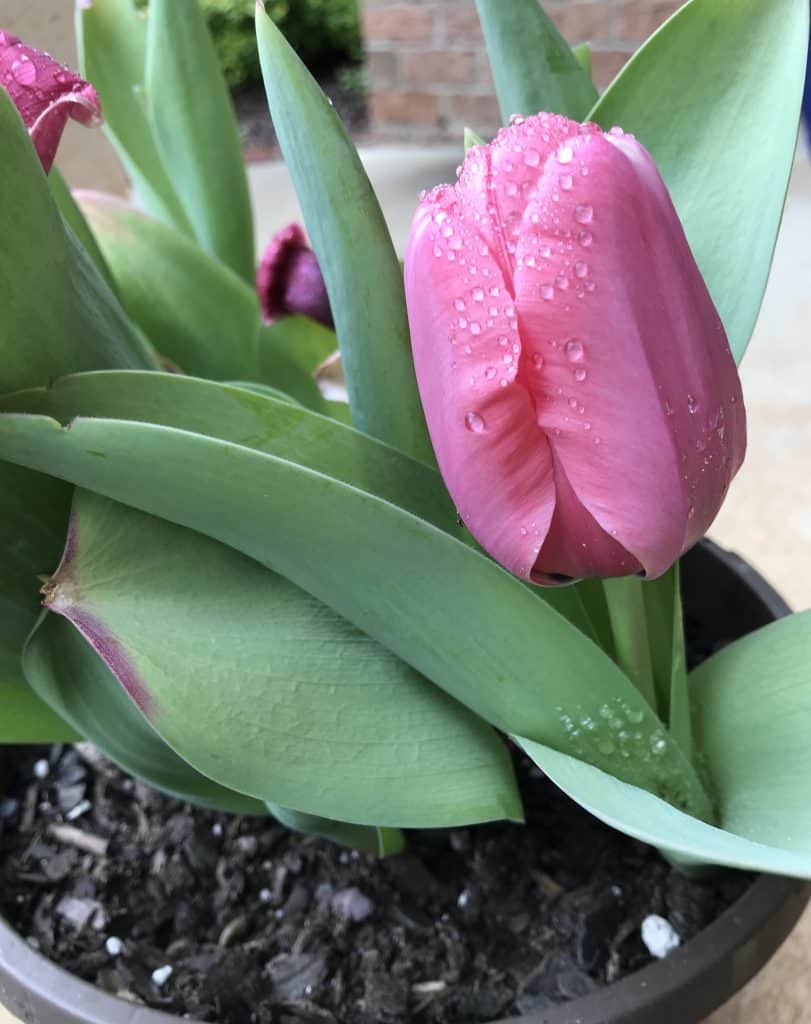
As a child, I remember bending over to smell the tulips in our spring garden. Usually I ended up with pollen all over my nose. I was fascinated by their internal structure and the black splotches that sat at the base of many a petal cup. Black just didn’t seem like a spring color. I also remember picking a bouquet and taking one of the flowers and running its petals across my cheek to feel its satiny surface.
As children, we prized these first bouquets of tulips. So often, few of the bulbs survived the winter because they were eaten by the squirrels. You never knew if any were going to survive when spring nodded its head and said go! This year I hid the bulbs from the squirrels by putting them in pots stored at the front of my house where they hardly ever wander. After they bloom, they’ll need to go into the soil to rejuvenate. I may experiment with their location to see how smart the North Carolina squirrels really are.
I found myself wondering what makes such a small, quickly vanishing flower so precious. Perhaps it is the ephemeral beauty that lasts but a few days and then disappears into memory for another year. Spring is like that. All winter long we wait for the bright colors and sunshine of spring days to fill our senses with flowers and lush green landscapes. There simply is never enough to satisfy that spring longing.
Because pink is my favorite color, I’ve planted all sorts of bushes that bloom varied shades of pink in my yard. In spring, my favorite is the pink weigela Czechmark Trilogy and the Deutzia Yuki cherry blossom. When I moved south, I finally planted a pink Kwanzan cherry in my front yard, something I’d wanted for years. Even though it only blooms for a few days, its double pink, ruffled blossoms are worth every moment of pleasure they give me and all who pass by.
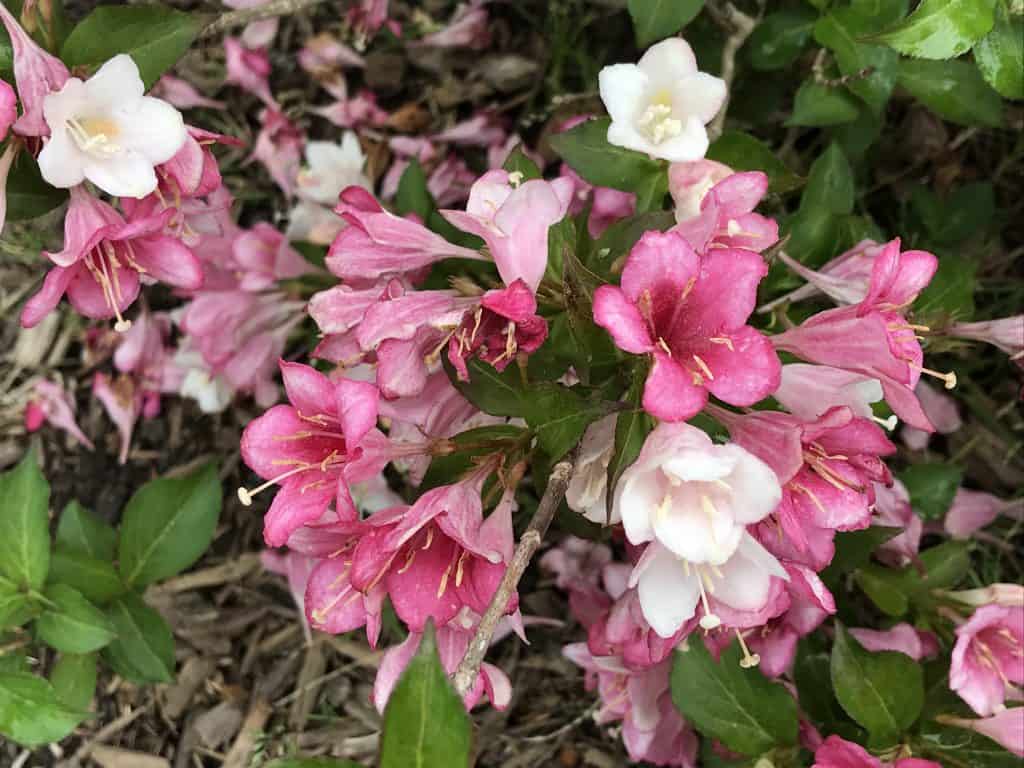
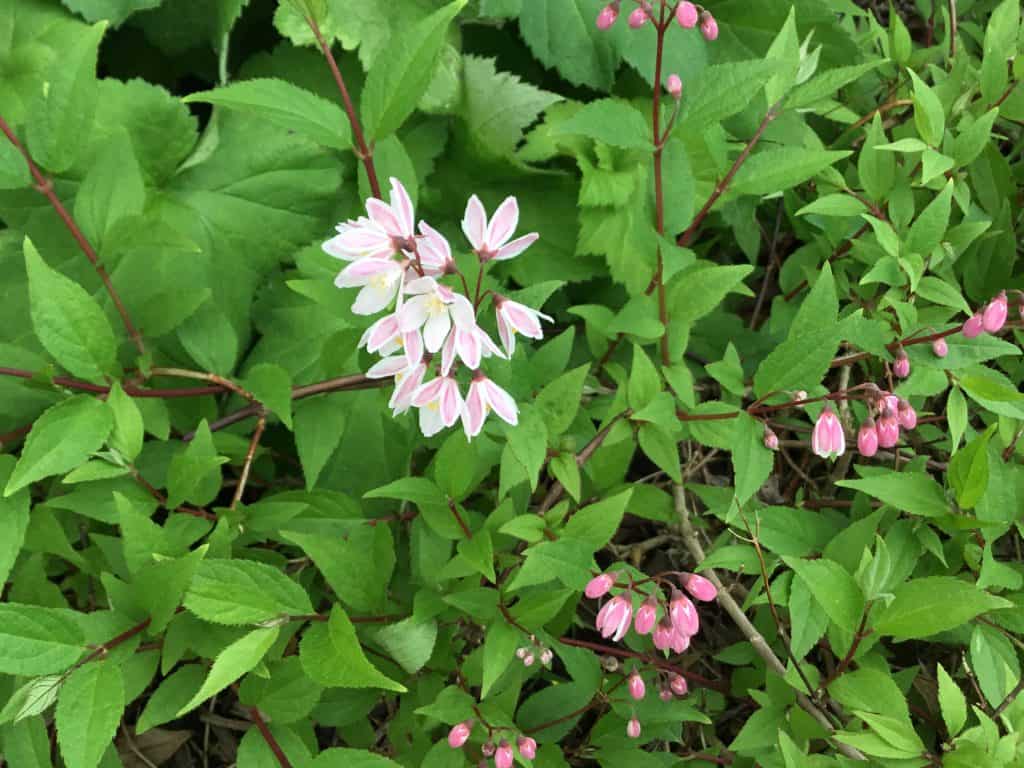
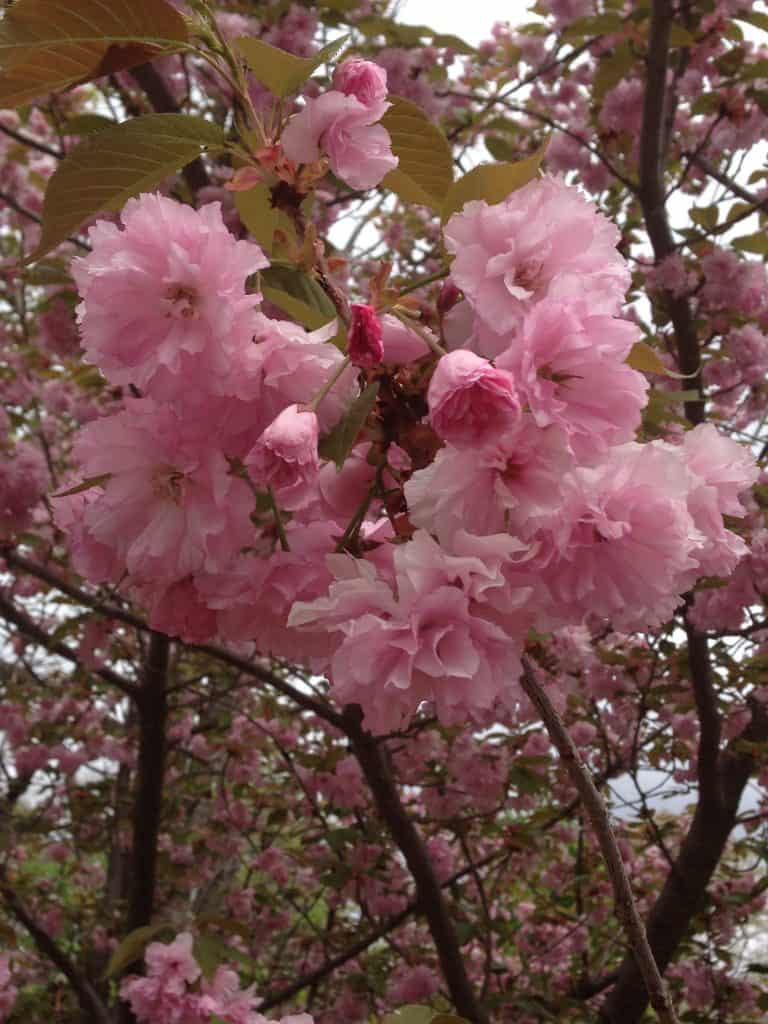
Soon, my extraordinary David Austin roses will bloom. The deep fragrance of the Gertrude Jekyll rose is a just tribute to her. My other favorite is the Queen of Sweden. The exquisite symmetry of its petal formation is a geometric marvel as well as being profoundly beautiful.
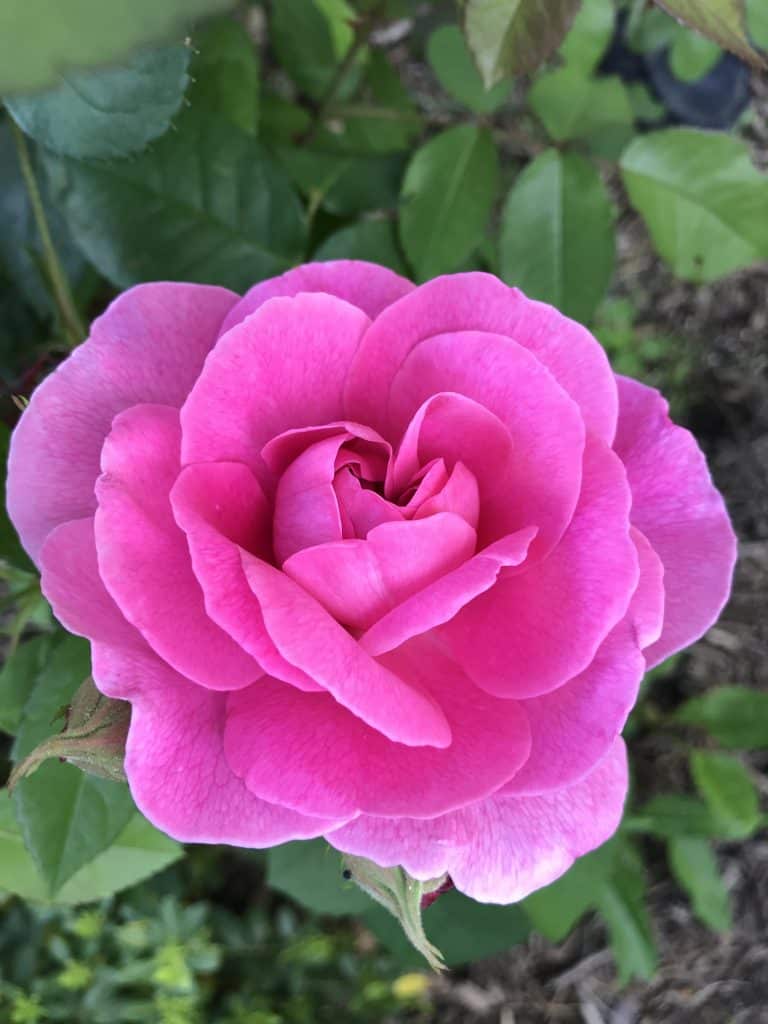
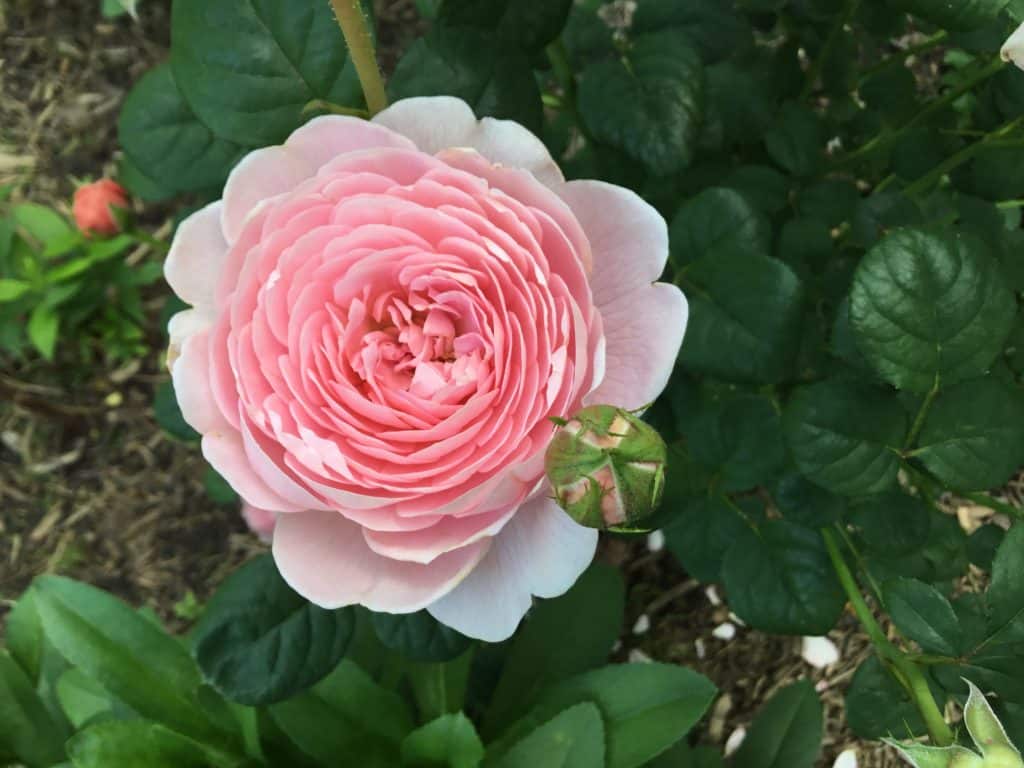
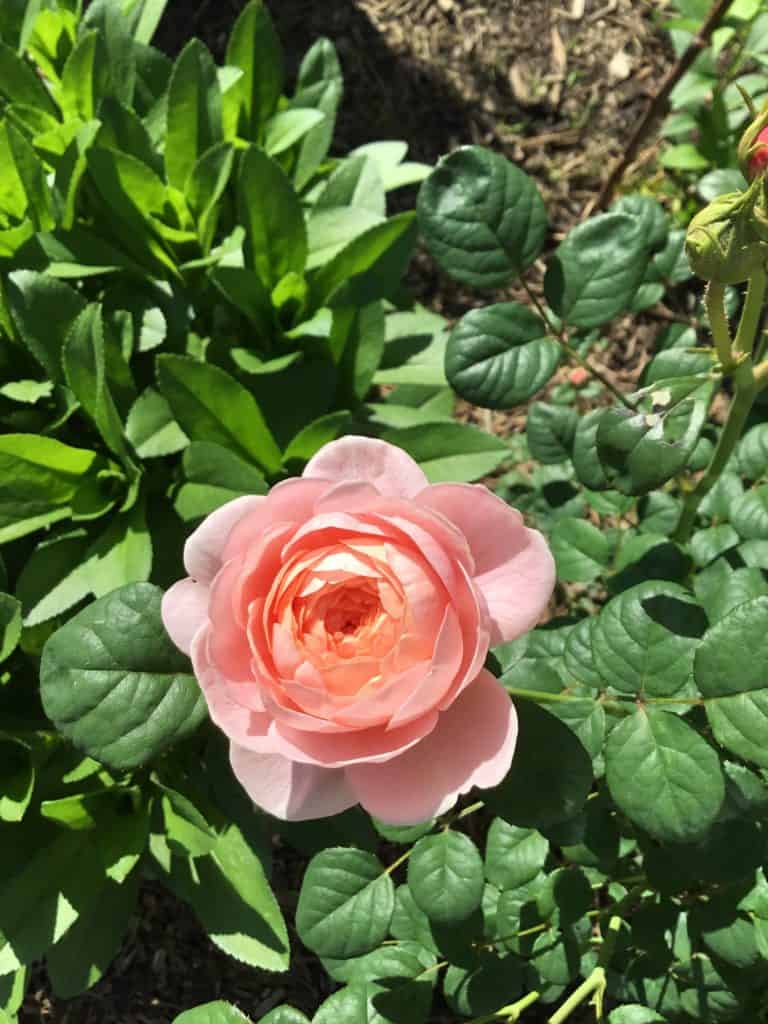
Mark Cocker, in his wonderful book of essays about the English countryside, Claxton, talks about how the scarcity of certain flora and fauna makes us focus on them, often causing us to miss the beauty in the abundance around us.
“Generally, birds that are scarce or less frequently encountered are assumed to galvanize our imaginations more than their commoner siblings…. A preoccupation with the exceptional is almost hardwired into the human imagination.” (pg. 25)
I think the brevity and the scarcity of this simple pink tulip has made me ponder its beauty even more. Would that we would pause each day to contemplate our own brevity and cherish our relationships as they present themselves to us. Being present in the moment is a skill well deserving our attention.
I know that I will only have a few days to appreciate the tulip blossom and then it will disappear for another year. Perhaps not ever to return. (Unless of course I plant more bulbs in pots.) But we never have to fear that our Lord will disappear and not return. In fact, it is just the opposite. He said that He is going away to prepare a place for us, and He will return for us. He is not affected by the vagaries of nature. He is always there, always available, and always ready to offer us redeeming love, forgiveness, salvation, and new life in Him — gifts from His hand every day.
The grass withers and the flowers fade, but the word of our God stands forever.”
Isaiah 40:8 NLT
